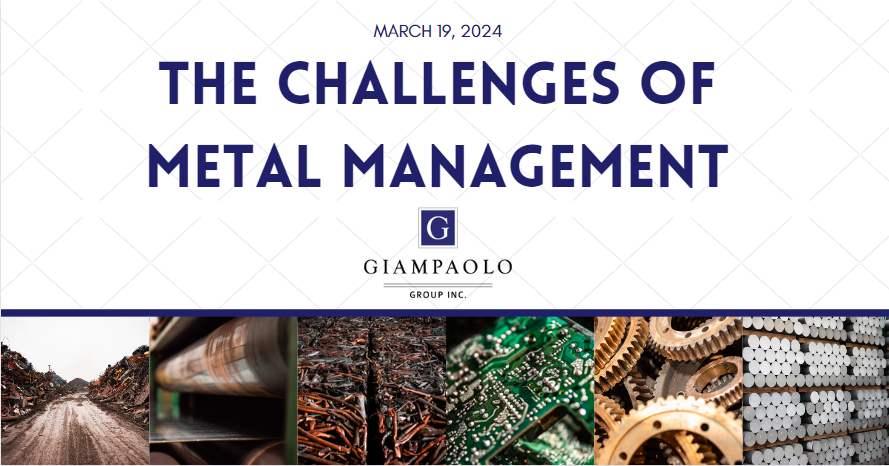While closed-loop metal management presents numerous environmental and economic benefits, it is not without challenges. One of the main hurdles involves sorting metals, which encompass a wide range of materials from household waste, industrial scrap, and end-of-life products. The diverse nature of these sources means metals often intermingle with other materials, such as plastics, glass, or different grades of metals, requiring further processing to maintain the quality of the recycled metal. To separate these metals, metal management firms are often required to investment significantly into advanced sorting technologies.
Energy consumption is another significant challenge in closed-loop metal management. Although the process generally consumes less energy than primary metal production, the melting and reshaping stages can still be energy intensive.
Urban mining is essential for addressing economic factors that influence the profitability of metal management operations, however, is not without its own challenges. Gathering metals and materials from urban areas has difficulty in ensuring sufficient volume and metals for collection to supply the scrap mills. The infrastructure for metal management, including collection systems, processing facilities, and transportation networks, requires substantial investment. Additionally, obsolete technologies, especially in electronic devices, contribute to the disposal of products containing valuable metals. Overcoming these challenges involves technological advancements, improved collection systems, and public awareness campaigns to foster a more sustainable and efficient metal recycling industry.
In navigating the challenges of successful metal management, the Giampaolo Group takes on a proactive commitment to find innovative solutions and energy-efficient practices, establishing itself as a leader in sustainable practices. The Giampaolo Group uses advanced sorting technologies such as copper chop lines, downstream separation facilities and zorba cleaning facilities to optimize the sorting of metal sources.
On the sustainability front, examples of GGI’s strive for sustainable practices through a closed-loop ecosystem include Quantum Lifecycle Partners LP, who formulated a calculator and reporting tool to quantify greenhouse gas emission reductions achieved through electronic recycling. Triple M Metal establishes relationships with steel mills, particularly the ones with EAF furnaces. This collaborative effort not only supports the expansion of EAF technology but also marks a significant stride towards sustainability by lowering carbon emissions. Giampaolo Group established Matalco JV with Rio Tinto as of December 1, 2023. This effort emphasizes the Groups dedication to environmentally conscious practices, including a focus on sustainable aluminum production and eco-friendly product exploration by producing more secondary (and less-carbon intensive) aluminum.
This holistic approach to sustainable metal management sets a commendable standard for the industry, showcasing the Giampaolo Group’s commitment to fostering a more technology-driven, low-carbon, and efficient future.

